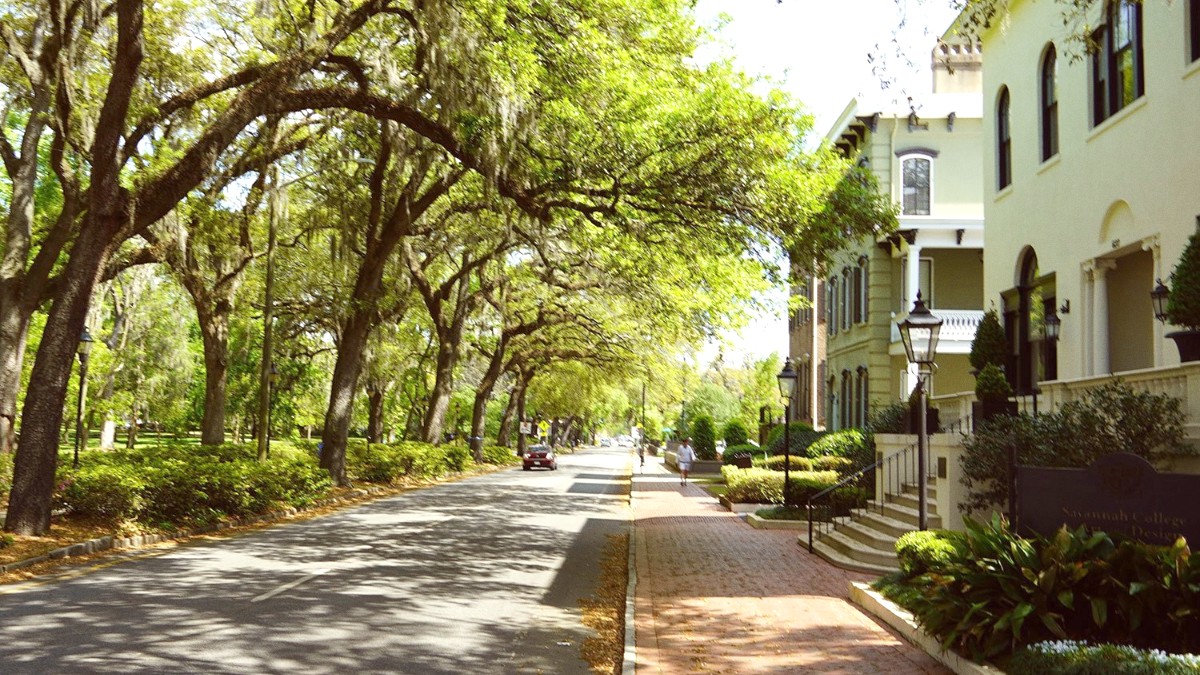
Georgia, USA
The city has a humid subtropical climate, which means hot, humid summers and mild winters.
Each period in Savannah brings its own character regarding weather, crowds, and travel expenses. This information supports your decision on when to visit.
Each season in Savannah has its own advantages and disadvantages for travelers. Weigh these factors when planning your trip to align with your preferences and budget.
The high season brings ideal weather but more crowds, while the low season offers lower prices despite the heat or cooler temperatures.
March-May, late Sept-Nov
Ideal weather, mild temperatures, lower humidity, fitting for walking tours and outdoor dining. Many festivals happen.
Higher accommodation prices, increased crowds, busy restaurants, longer lines for tours.
February, early Sept, December
Temperatures appear milder, crowds are less dense. You frequently find better deals on accommodation and flights.
Early September may still experience significant heat. Outdoor activities might be limited by cooler temperatures in February and December.
June-August, January
This period features the best deals on accommodation and flights. Fewer tourists, providing a more relaxed exploration. Summer suits beach trips.
Summer brings extreme heat and humidity. Risk of hurricanes (June-November). January can be quite cool with rain.
Hurricane season officially spans from June 1 to November 30. Peak activity usually falls from late August to October. Travelers planning to visit during these months should monitor weather advisories from reliable sources like the National Hurricane Center.
Summer's heat and humidity are significant. Hydration is . Drink plenty of water. Seek air-conditioned spaces frequently. Wear light, breathable clothing. Avoid strenuous outdoor activities during the hottest parts of the day (midday to late afternoon).
For hurricane season, monitor weather advisories from the National Hurricane Center. Flexible Travel insurance or Digital nomad insurance is a good idea.
In summer, drink plenty of water and seek air-conditioned spaces. Avoid strenuous activities during peak heat.
Sun protection, including Hats and Sunscreen, is recommended.
Heavy rainfall may cause temporary localized flooding in low-lying areas. This typically recedes quickly but temporarily changes walking paths or driving routes.
Have a flexible Travel insurance plan if visiting during hurricane season. SafetyWing is an option.
Spring and Fall present the best times for walking tours and outdoor exploration. The comfortable temperatures render long walks enjoyable, and the natural beauty of the squares and parks stands at its peak.
For travelers heading to Savannah, Georgia, understanding the entry requirements for the United States proves important. Requirements vary based on your citizenship.
Travel to Savannah is domestic travel. No visa or passport is needed. A valid government-issued photo ID is sufficient for domestic air travel.
A valid passport and, in most cases, either a visa or an approved Electronic System for Travel Authorization (ESTA) through the Visa Waiver Program (VWP) is necessary.
Costs vary widely depending on your travel style, from budget-friendly adventures to luxury getaways.
The city is generally safe for tourists, but understanding common concerns and emergency procedures is always wise.
A main concern in hot, humid summers. Stay hydrated, seek shade, wear light clothing, avoid strenuous activity during peak heat. Apply Sunscreen with a high SPF and use a Wide-brimmed hat and Sunglasses.
Rare, but mosquitoes are present. Use Insect repellent containing DEET or picaridin, especially at dusk or dawn near marshy areas. Wear long sleeves if susceptible.
Seasonal pollen counts can be high, specifically in spring. Bring usual allergy medication and check local pollen forecasts.
For any immediate emergency involving police, fire, or ambulance services, dial 911 from any phone.
U.S. Has a high standard of medical care, but it may be costly without insurance.
Well-regarded hospitals: Memorial Health University Medical Center and St. Joseph's/Candler Hospital. Urgent care clinics are available for non-life-threatening conditions.
Major pharmacy chains like CVS and Walgreens are widely available for prescriptions and over-the-counter medications.
Avoid walking alone in dimly lit areas or unfamiliar neighborhoods after dark. Stick to well-trafficked and well-lit streets.
Petty crime, like pickpocketing or car break-ins, can occur. Do not leave valuables visible in your car. Use a Money belt or secure bag for your passport and cards. Consider Pacsafe for anti-theft bags.
Be aware of your surroundings and avoid distractions like constant phone use. Trust your instincts.
Savannah, located on the Atlantic coast, is susceptible to hurricanes and tropical storms during hurricane season (June 1 to November 30, with peak activity late August to October).
Travel insurance is highly recommended for all travelers. It protection against unforeseen circumstances.
Healthcare costs in the U.S. May be very high; coverage for treatment and evacuation.
Covers costs if your trip is canceled or cut short due to covered reasons (illness, natural disaster). Compare policies from providers like World Nomads or SafetyWing.
Compensation for lost or delayed bags, and rental car coverage if you plan to drive. AirHelp can assist with flight issues.